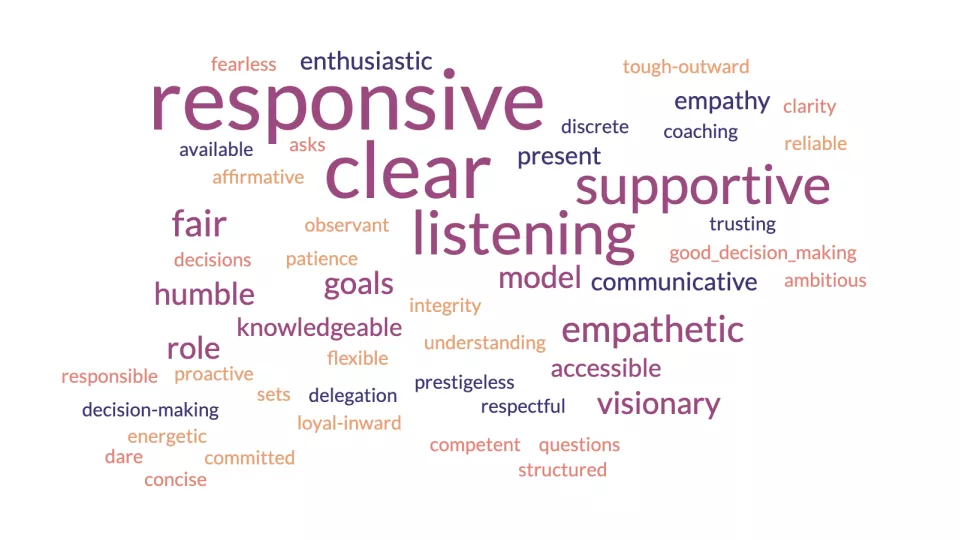A good manager is responsive, clear and listening. Having a good manager creates security, gives employees freedom and prerequisites to do their work. But how do you do it?
Around 50 Heads of Division and some research group leaders gathered for a full day in the Belfrage Hall to be inspired and exchange experiences.
I hope that everyone who was there took home something of the softer aspects of leadership. I think so, because everyone took part in the discussions.
Under the leadership of Head of Department Mikael Bodelsson, the participants were asked to define what qualities a good manager has and what it means to have one. And together with the office's HR partners Sara Skogar, Anne Vähäniemi and Jessica Hörngren, the dialogue with employees in general and the importance of the performance appraisal in particular was discussed. Not least to spot employees who are at risk of burnout or who have experienced some form of victimisation.
Increased joie de vivre
The key to recovery is variety, according to Linda Kuhn, psychologist at the occupational health service, who lectured on recovery and its positive effects that make us feel more joy of life, think more clearly and become better at taking on complex tasks. Variation in tasks, in environment and pace, during the working day and in leisure time.
To transform theory into practice, the participants had to take a restorative walk and after the walk they were able to share their best tips; exercising, being out in nature and meeting people we like.
A call for a network of managers
Finally, it was discussed what kind of support the managers need to be able to carry out their commitments. What can the department do, what can the division do and what can I do myself?
The support from HR received the highest score, as did Chefskollen.
On the wish list is increased support for administrative tasks that come with the managerial role but which are outside the support that the office is currently responsible for, as well as a replacement for being a manager. In addition, there was a call for some form of management network and recurring management days.
“I hope that everyone who was there took home something of the softer aspects of leadership. I think so, because everyone took part in the discussions. Special thanks to our professional HR partners, the brains behind our first management day. I don't think it was the last”, said the Head of the Department, Mikael Bodelsson.


